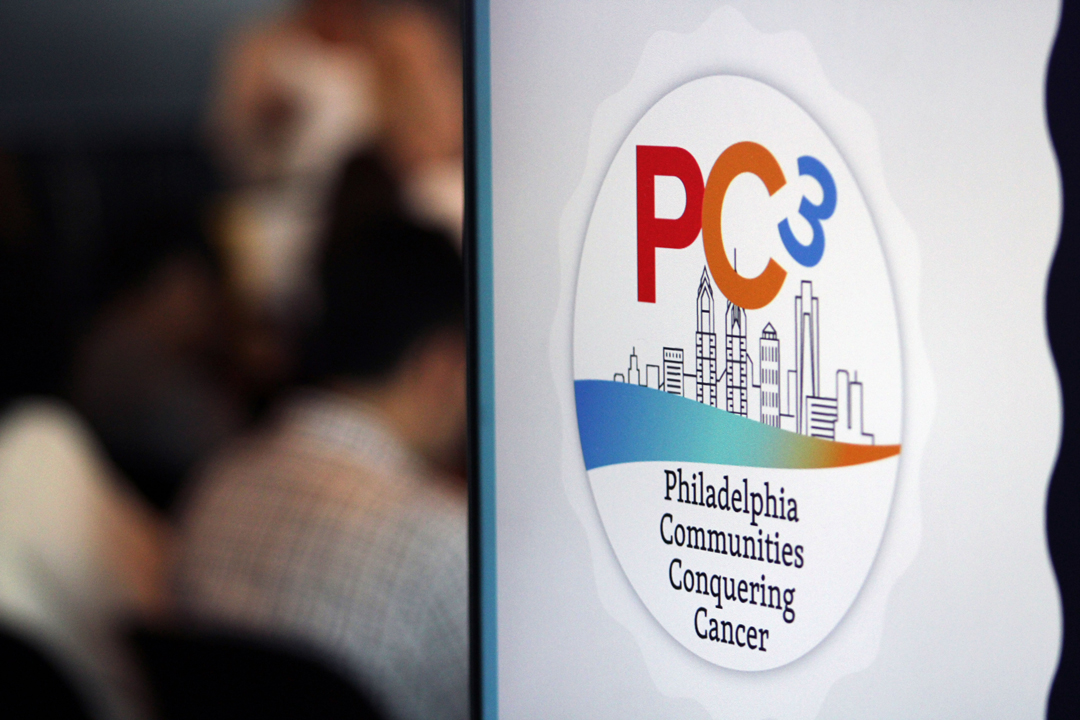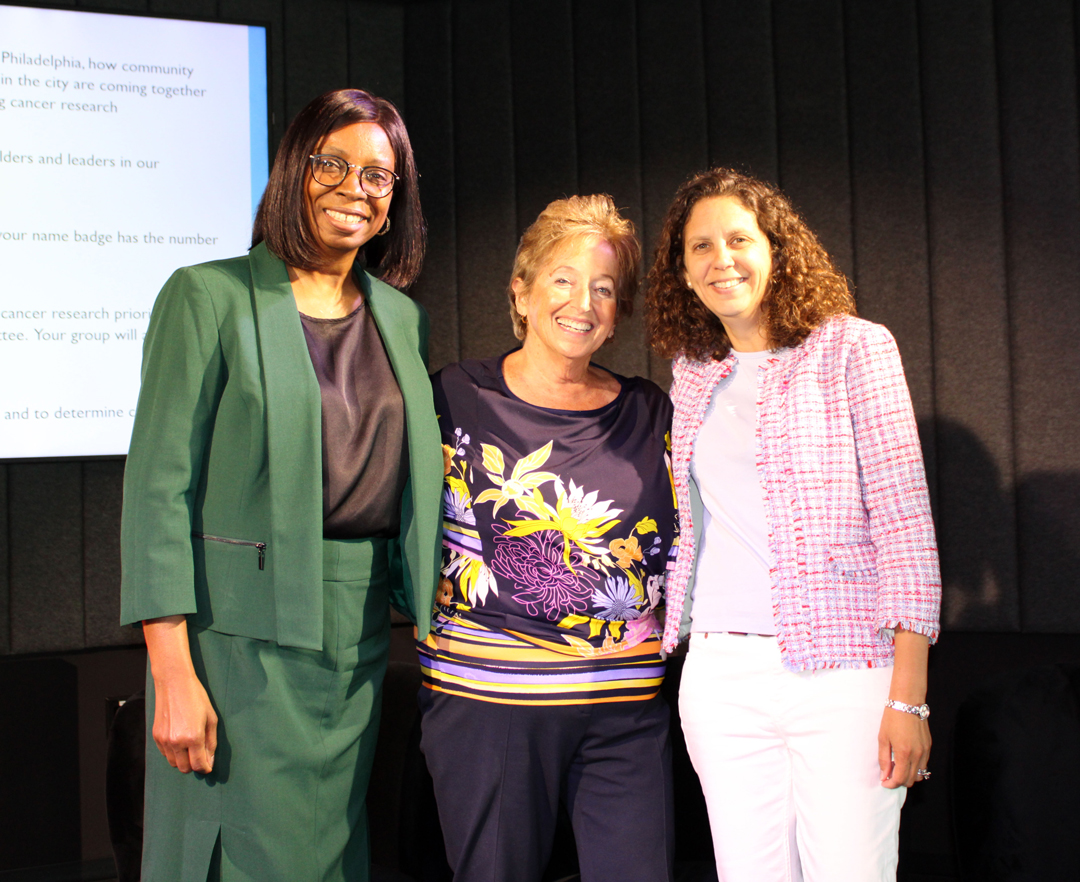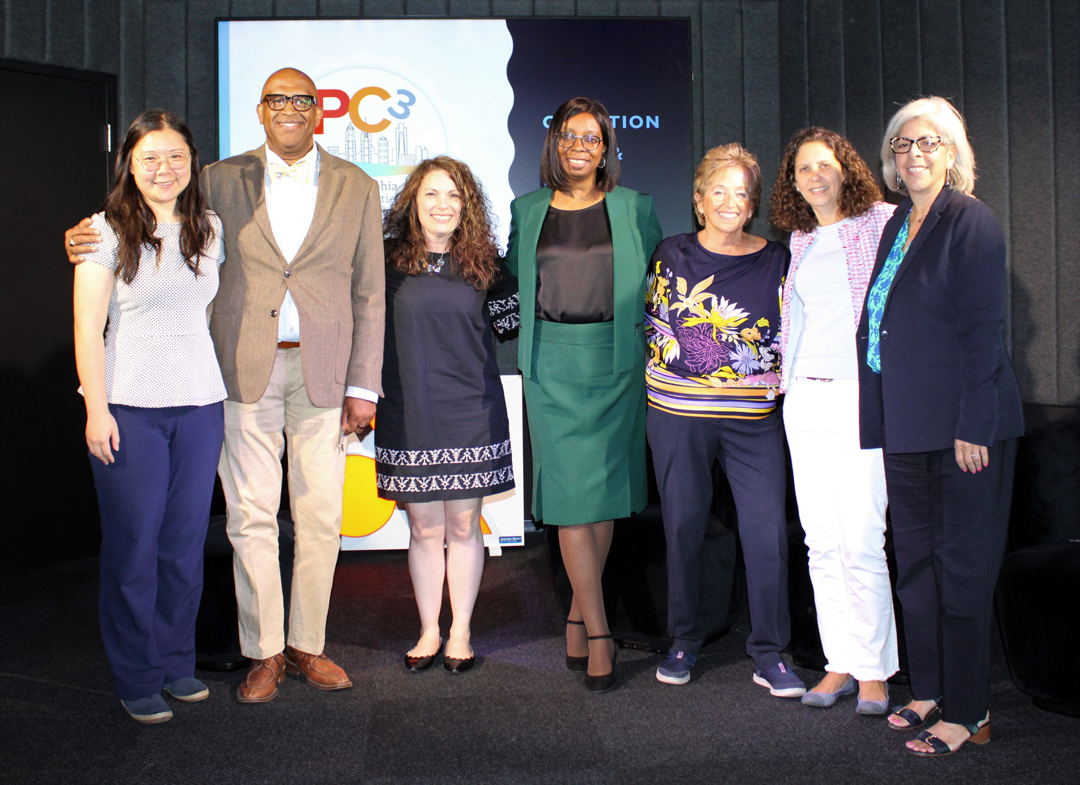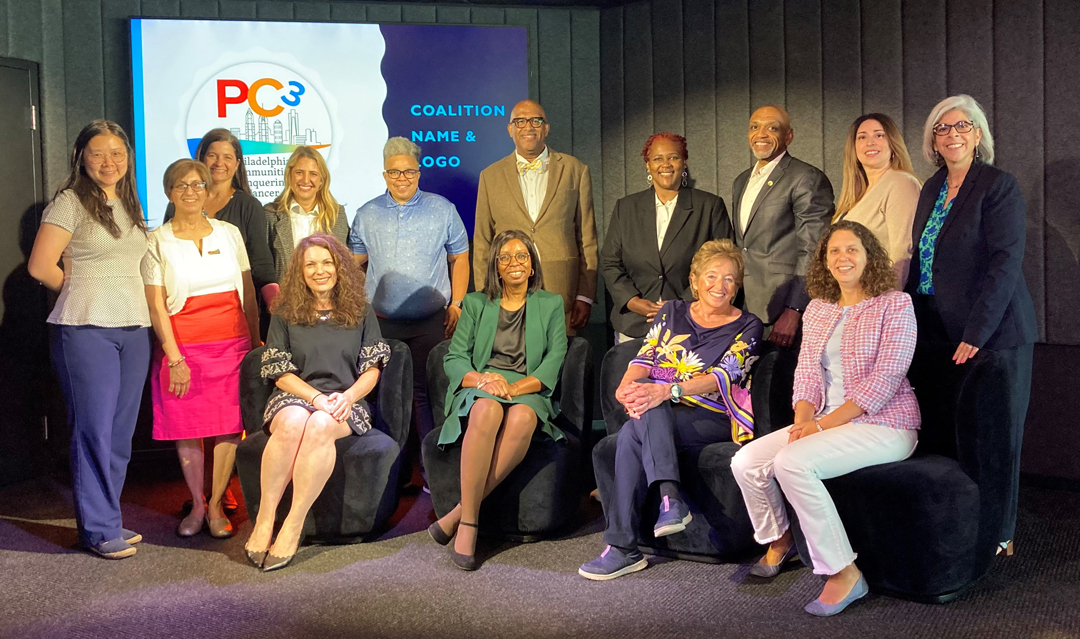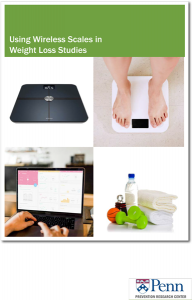City-Wide Cancer Disparities Conference
We heard very moving personal stories from some cancer survivors and ‘pep rally’ encouragement from a former Eagles player.
Everyone gave input into helping us process the Listening Sessions and think about our future research and program priorities to reduce cancer disparities in Philadelphia.
On June 15, 2023 representatives from health systems, cancer centers, stakeholders, and Philadelphia community members discussed concerns about cancer in the region and charted a path forward to reduce disparities in our city.
The group was assembled by the Philadelphia Communities Conquering Cancer (PC3) collaboration, whose mission is to empower Philadelphians to reduce cancer disparities through community engagement, resource alignment, information sharing, research, and prevention. An opportunity funded by PCORI.
The Patient-Centered Outcomes Research Institute (PCORI) is a nonprofit organization authorized by Congress to fund comparative clinical effectiveness research, or CER. The studies funded are designed to produce reliable, useful information that will help patients, family caregivers, clinicians, employers, insurers, policy makers, and others make better informed health and healthcare decisions. The work is guided by a Board of Governors representing the entire healthcare community. The coalition is made up of representatives from Abramson Cancer Center at Penn Medicine, Sidney Kimmel Medical College at Thomas Jefferson University, and Fox Chase Cancer Center. The funded project is “Building Capacity for Patient Centered Outcomes Research through a City-Wide Cancer Coalition.” Community members, patients, and stakeholders are the cornerstone of the project. The SAC guides all proposed activities and play key roles in planning, implementation, and dissemination. Additional community members and stakeholders host the listening sessions, participate in the consensus conference, and speak during the research advocate training program.
Visit the website to learn more about the programs, leadership, and community partners.

